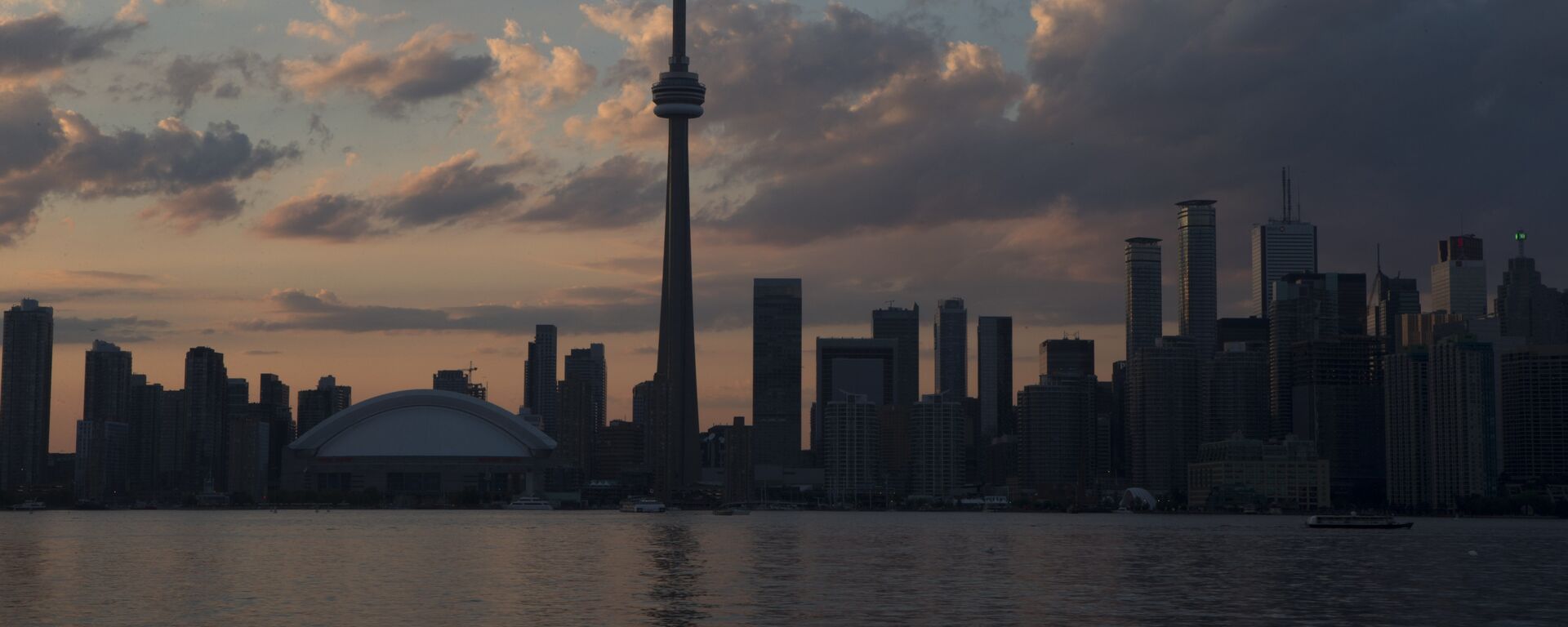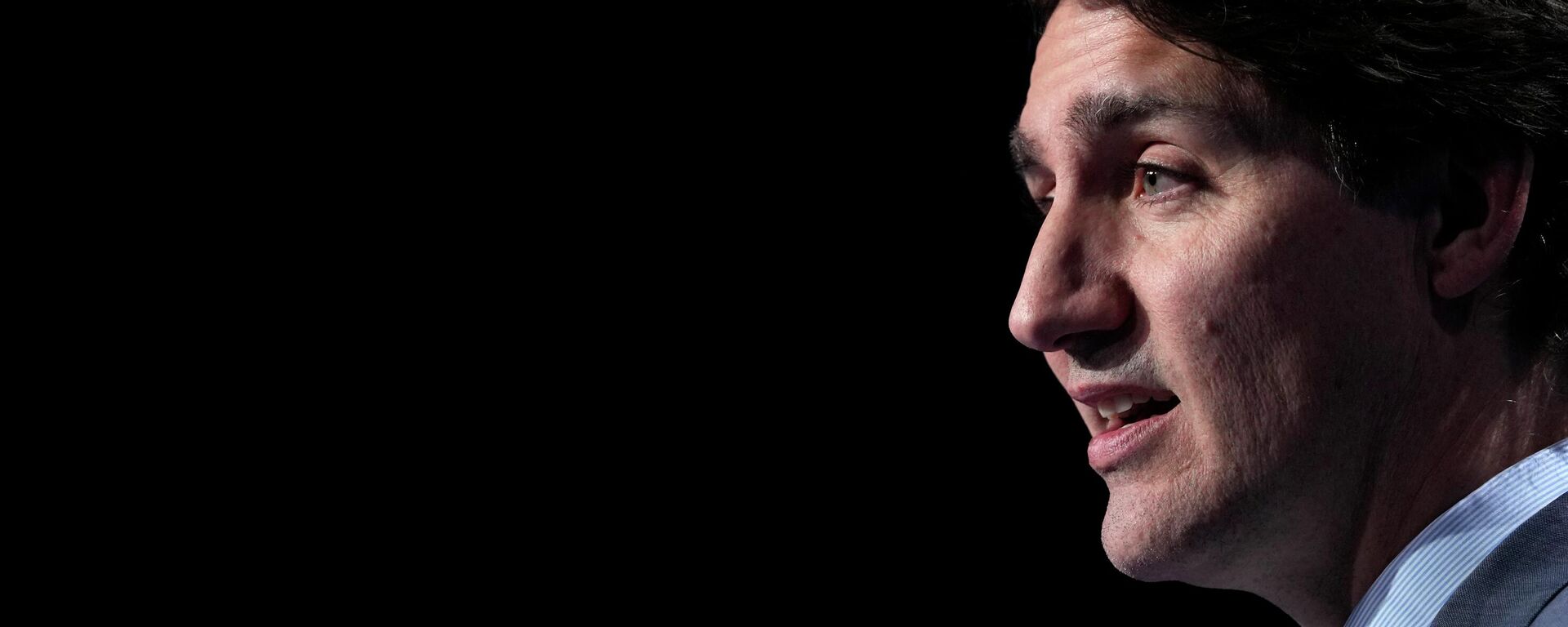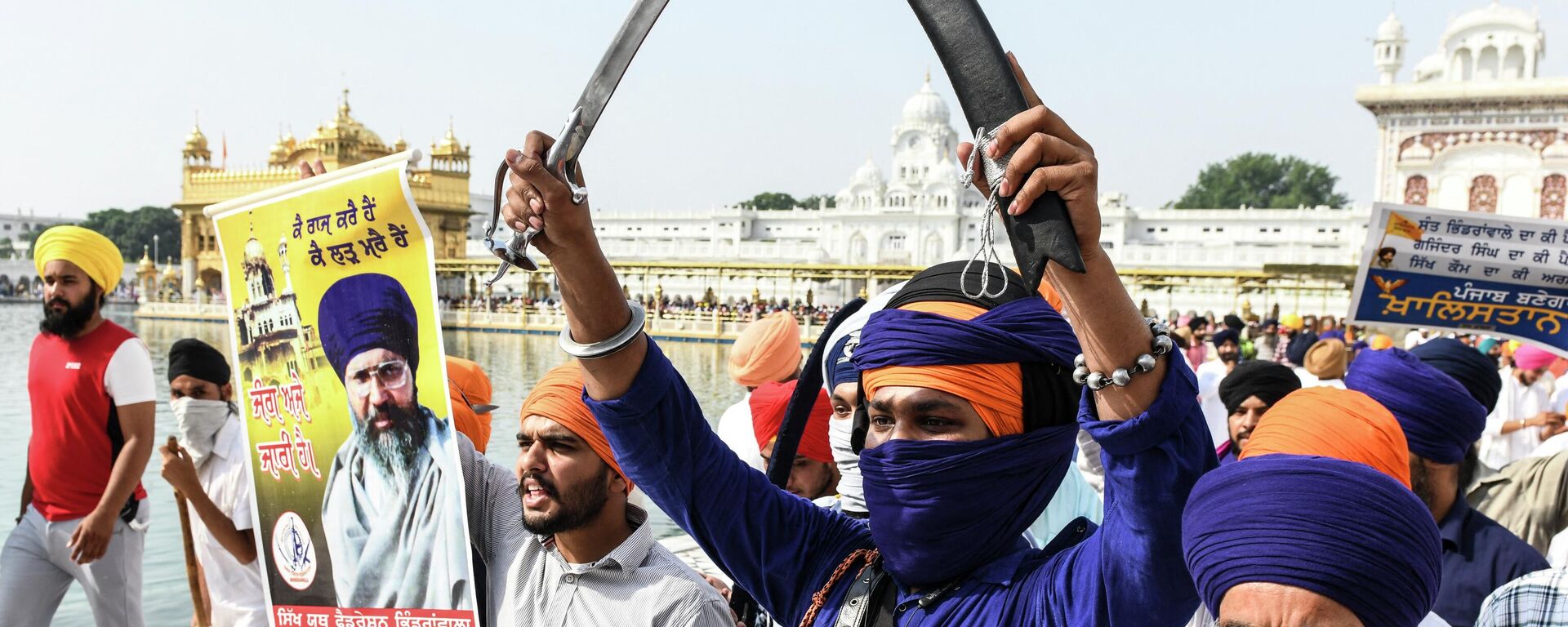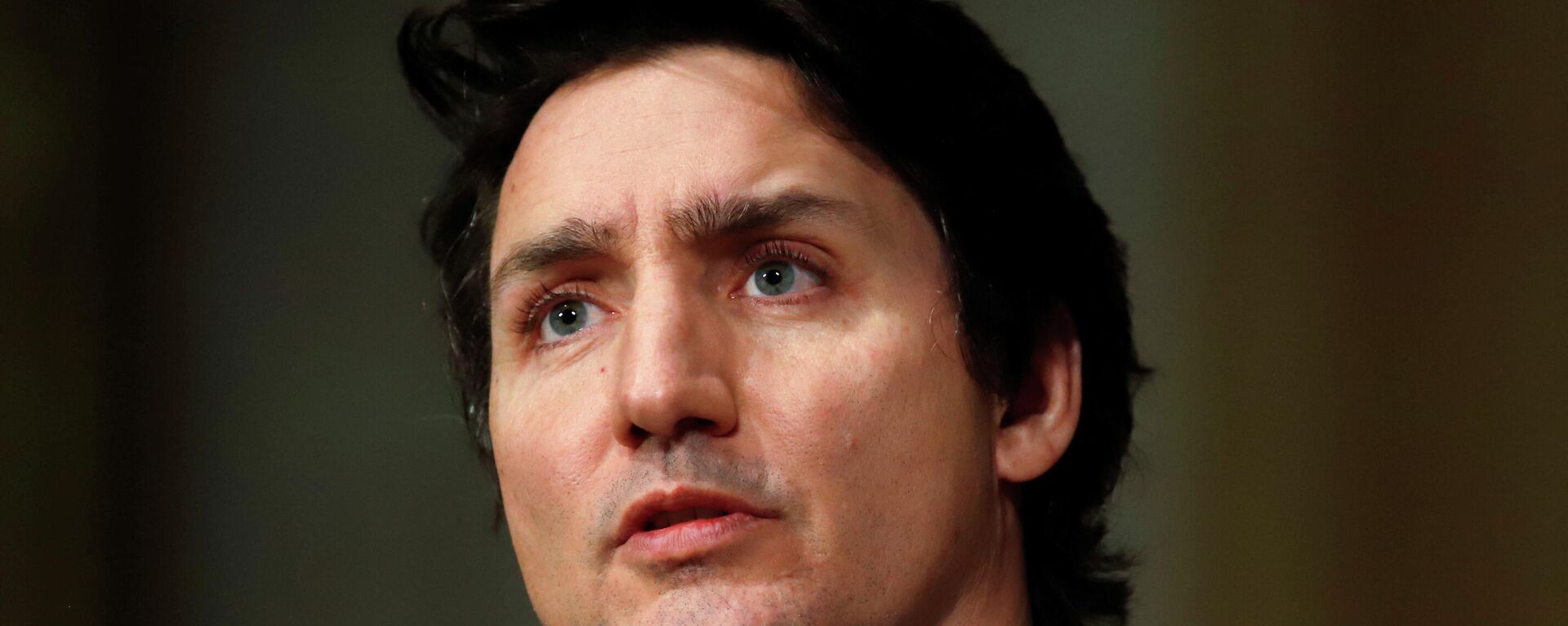Housing Crisis, Stagnant Wages, Fractured Society: The Bleaker Side of Canada’s Immigration Boom
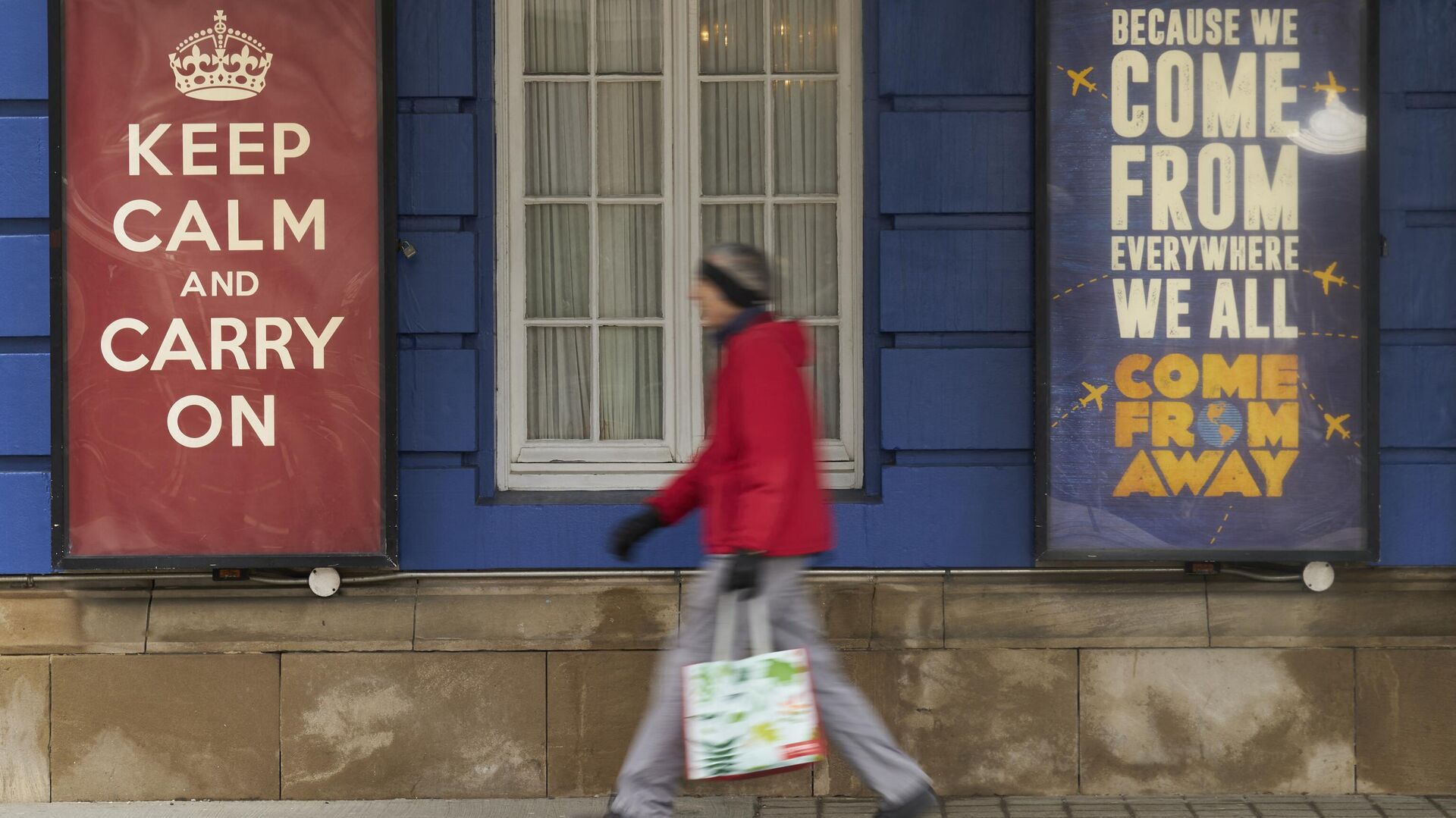
© AFP 2023 / GEOFF ROBINS
Subscribe
Statistics Canada census data released last month revealed that nearly one in four residents are new arrivals. Ottawa expects immigrants to comprise up to one third of the population by 2041. What are some of the pitfalls of Canada’s immigration experiment? And why is it taboo to even talk about it in public? Sputnik explores.
Immigrants now comprise 23 percent of Canada’s population, accounting for 8.3 million people out of a total population of 38.25 million.
According to fresh government figures, immigrants have accounted for 80 percent of the growth in the labor force since 2016. The Liberal government of Prime Minister Justin Trudeau has made large-scale immigration on a scale unseen since the early 20th century a central pillar of its political and economic policy, citing immigrants’ role in ensuring steady economic growth, helping to plug gaps in the workforce caused by the aging of the Canadian-born workforce, and the skills they bring with them.
Last week, Sputnik spoke to several new Canadians, as well as people who have not yet made it to the country but are looking to immigrate, asking them to share their reasons for picking Canada. Immigrants gave a variety of reasons, including violence and political instability in their home countries, economic opportunities, Canada’s social safety net, generous allowances for family migration, and what is perceived to be a welcoming environment for immigrants compared, for example, to the United States.
But not everyone is enthusiastic about the Trudeau government’s approach, with many expressing concerns, mostly behind closed doors, about its implications for ordinary Canadians’ economic well-being, and the danger that in its current form, immigration could fracture Canadian society.
Policy Out of Step With Nation’s Needs
“Everyone in Canada is an immigrant, except for the so-called indigenous people,” says Bill Tufts, founder of Fair Pensions for All, a Canadian advocacy group focusing on public-sector pension and compensation issues. The political and economic commentator fears that current immigration trends don’t match Canada’s real economic needs, and end up hurting rather than helping the country and ordinary Canadians.
“If you look a hundred years ago or 125 years ago, people were coming into the country and they were exploiting the resource opportunities that we had in the country to create wealth. Cities were being built, roads and other structures were being put into place. We were taking advantage of the huge wealth that we have in Canada with oil and gas and mining and forestry and all the other natural resources that we had. Somebody coming into the country was working in one of those areas that was expanding and creating wealth,” Tufts explained.
Today, that’s no longer the case, according to the observer, with the government’s policies placing restrictions resource-based wealth generation under the pretext of environmentalism. Instead, the speed with which immigrants, arrive has put immense pressure on the housing market, and added to the strain on the nation’s social safety net as well.
“We have an extreme housing crisis in Canada. There’s just no way you could build that many housing units that fast” to facilitate the new arrivals, Tufts stressed.
Housing prices have doubled, tripled or even quadrupled in many Canadian cities over the past two decades, rising by 10.3 percent in 2022 alone, with a recent World Housing Market Index study by Money.co.uk finding that the nation has one of the least affordable housing markets in the developed world. Booming prices have left many young people unable to buy their own homes, and combined with other factors, mean that entire generations now face the prospect of being worse off than their parents were 20, 30 or 40 years ago.
Tufts pointed out that the United Nations Human Rights Commission on Refugees has recognized Canada as a 'leader on refugees'. “With the amount of people coming into the country, we’re looking at 600,000 foreign students inside of Canada with student permits. That’s the highest in the world on a per capita basis for three years in row...We have temporary foreign workers coming in. We have the regular stream of permanent residents. We also have the illegals that are coming into Canada just walking across the border without any requirements,” he said.
“The recent Stats Canada report claimed that 1.8 million people had come into the country in the last five years. So that would make it bigger than the city of Montreal, which is our number two city. So if you put all those people together into one city, it would be the number two city in Canada,” Tufts said, giving a sense of the scale of what is happening.
The observer emphasized that with the Trudeau government planning to invite an additional 1.3 million people into the country over the next three years, that means that over an eight-year period, migrants alone will account for a population equal to that of Toronto, Canada’s largest city.
“How long would it take for the infrastructure in Canada to be built and put in place, to accommodate housing, education, the infrastructure of roads and other services? I’m concerned [that] as a topic within Canadian society, as you’ve mentioned, it’s become taboo – certainly politicians are unable to talk about it,” Tufts said.
Tufts pointed out that as things stand, while it has been underreported in the media, a growing percentage of Canada’s homeless population, and people forced to turn to food banks for assistance, are newcomers. The observer noted that with rising health care costs (the average Canadian over 80 requires an estimated $20,000 in health care per year), and the large numbers of senior family members of immigrants able to come into the country alongside their working-age relatives thanks to the sponsorship system, the strain on the social safety net really starts to add up.
Voodoo Economics
Tufts doesn’t buy the Trudeau government’s economic justification for immigration, and the argument that migrants are a boon to the economy. Pointing out that the real wages of Canadians have been falling for a decade, with the drop accelerating over the past year thanks to spiking inflation, the observer characterized Ottawa’s “economics” argument as “a joke.”
“Of course, bringing that many people into the country is creating an increase in aggregate GDP, but not on a per capita basis. And so individual lives are not getting any better from that. But on the aggregate basis, I think, politicians use the aggregate basis that we have five people with an income of $20,000 replacing two people that have $50,000, that’s sort of the same thing. But I don’t believe that it is,” Tufts explained.
Instead, the observer noted, the nation’s elites, including unions, “benefit from the massive immigration that’s coming into Canada,” as “it allows them access to a low paid workforce.”
Taboo Topic
Unfortunately, according to Tufts, with the media mostly silent on immigration-related problems, and the country’s opposition parties largely walking lockstep with the Liberals on the issue, simply even talking about the problems caused by migration can be met with extreme hostility.
“It’s shocking, that despite the huge number of people coming into the country, anybody that even questions it on an economic basis is accused of being a ‘neo-Nazi racist extremist’,” the observer said.
“We can’t even talk about the economic implications, or analysis. Trudeau is a hardcore World Economic Forum, UN Agenda 2030 guy, and he always wants to be out there, number one in all the Agenda 2030, WEF initiatives, and immigration is certainly one of them with the implementation of the United Nations Migration Compact of 2018, which said that no international borders exist anymore in terms of immigration,” Tufts said.
The observer pointed out that in one of his first speeches as prime minister, Trudeau characterized his country as a “first postnational state,” which Tufts fears means “that Canada has no identity or culture that was really unique to Canada or we could call our own.”
“It’s the destruction of our cultural values, our cultural morals, our cultural traditions and just part of this multicultural immigration is obviously benefiting the elites," Tufts said.
Multiculti vs. Melting Pot
In recent years, critics of Canada’s immigration approach have expressed concerns about the creation of disparate ethnic and religious enclaves, which can result in difficulties with integration, and risk creating fractured communities, exacerbating misunderstandings or even distrust and animosities between Canadian-born residents and newcomers, or between different groups of new Canadians.
Asked to comment on this problem, Tufts explained that the very ideology at the core of Canada’s approach to immigration may help explain this problem.
The observer pointed out that Pierre Eliott Trudeau, Justin Trudeau’s father, who served as Canada’s prime minister between 1968 and 1979, and again from 1980 to 1984, “made a point of pointing out that immigration into Canada was about multiculturalism and diversity.”
“It’s not like, for example, in the United States where they’re proud of the fact that it is, or was, a melting pot, where everybody came in and expected to join together for the betterment of the country and ‘melted together’ in one big ‘pot’ to create America. Here in Canada, multiculturalism is a concept that very clearly defines the small enclaves of society based on racial background, ethnicity or even sexual preferences,” Tufts said.
Bill Tufts is a political and economic commentator and founder of Fair Pensions For All, an advocacy group focusing on public-sector pension and compensation issues. He's also the author of the book "Pension Ponzi: How Public Sector Unions are Bankrupting Canada’s Health Care, Education and Your Retirement."

